Launching Easter Eggs Experiment
Are you looking for Easter ideas? Try this fun science experiment using plastic Easter eggs. Our Launching Easter Eggs Experiment practices counting, measuring, and more.
Launching Easter Eggs Experiment
This activity is similar to our Cars and Blocks Measuring Experiment and our Launching Cars Measuring Practice in that we use Hot Wheels launchers to move things across the room.
Materials {Amazon affiliate links are included}:
- Plastic Easter eggs
- Hot Wheels ramp launcher {ours came from the Hot Wheels T-Rex Takedown Playset
} and/or
- Launcher from the Hot Wheels Angry Birds Track Set
{or any launcher – they are sold separately, too}
- Cloth Tape Measure
{I prefer using cloth over metal.}
**If you don’t have a launcher, you could use a spoon as a catapult, build a simple catapult with craft sticks {like this one I shared at Kids Activities Blog}, or make a sling shot to launch your plastic eggs.
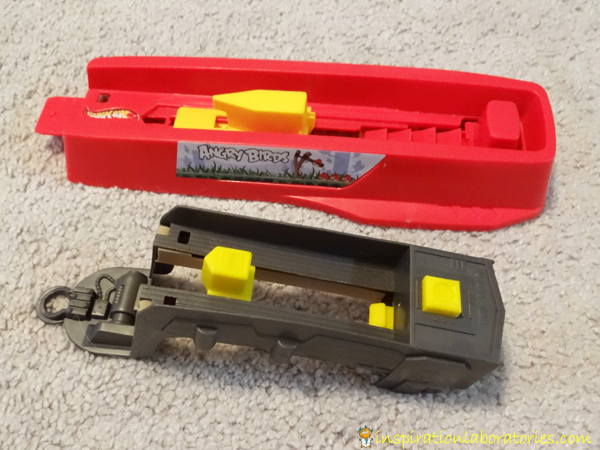
Experiment #1:
For our first experiment, Aiden used the ramp launcher. He launched all of the Easter eggs one by one across the room. We were testing to see which egg would travel the farthest. Was there a pattern? Did smaller eggs travel farther than larger eggs? Did half eggs travel farther than whole eggs? We didn’t observe a noticeable pattern. The eggs seemed to travel at random distances. The two largest eggs did travel the shortest distance.
Experiment #2:
For the second experiment, we tested how the weight {mass} of the egg affects the distance traveled. We used only the soccer ball eggs to be consistent {we call that a constant in science}. Inside the eggs, we placed different numbers of pennies {from 0 pennies to 10 pennies}. Aiden also wanted a quarter in one egg. Filling the eggs was a great opportunity for practicing counting skills.
I labeled the eggs with the numbers of pennies they each had.
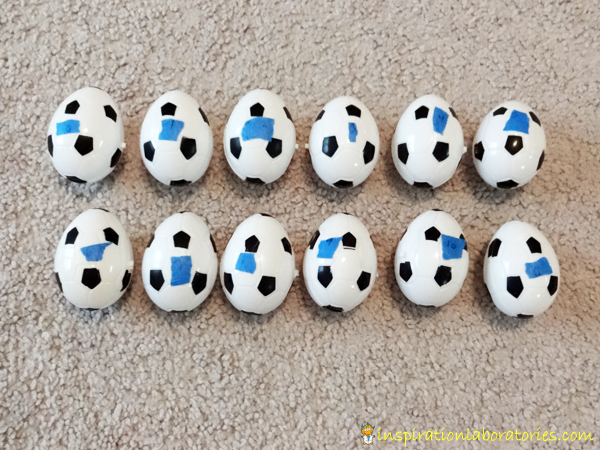
Aiden chose to use the flat launcher for this experiment. We placed the cloth tape measure across the floor. The zero mark on the ruler lines up with the egg on the launcher. Pull the launcher back all the way {another constant} and release.
Aiden launched the eggs one at a time and we recorded how far they traveled. The eggs with less weight traveled farther than the eggs with more weight. Except for the egg with 0 pennies, the data was pretty consistent. There was one anomaly. The eggs with 3 and 4 pennies did not travel as expected. They traveled a lot less than the eggs with 5 and 6 pennies. Aiden didn’t pull the launcher all the way back. We relaunched these two eggs and their distances fit the pattern nicely. I talked with Aiden about the data we collected. I asked him which eggs traveled the farthest – ones with more pennies or ones with less.
Here is our data:
I suggested we repeat the experiment and see if we get the same results. Aiden wanted to redo our first experiment instead.
If you try this experiment, let us know if you get the same results as we did?
More Easter Science Activities:
- Graph the contents of your Easter eggs. Practice letters, colors, counting, and fine motor skills in this fun Easter activity.
- Go on an Easter egg hunt and add in some map reading.
- Do you know what to do with leftover Easter egg dye? Try one of these suggestions.
- Check out my Easter Pinterest board for even more Easter ideas.
Subscribe to our weekly newsletter and get exclusive science explorations for young scientists in each issue.

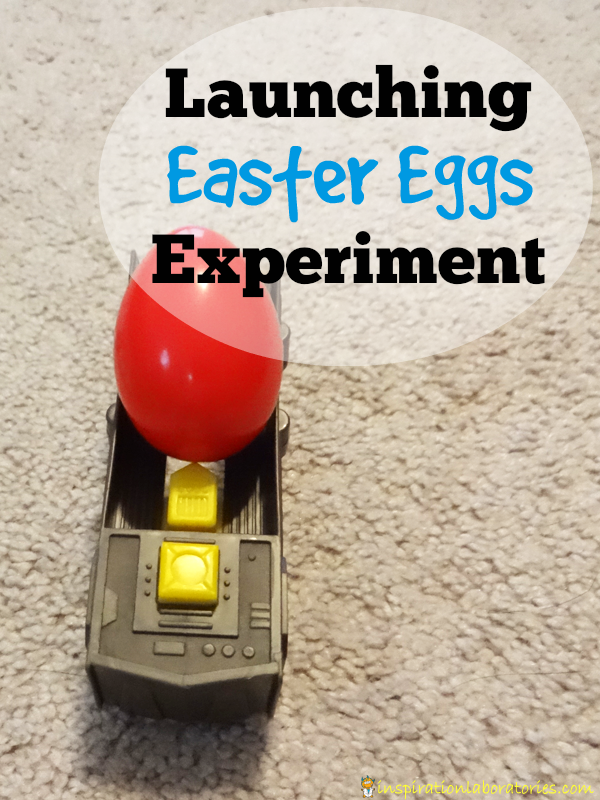
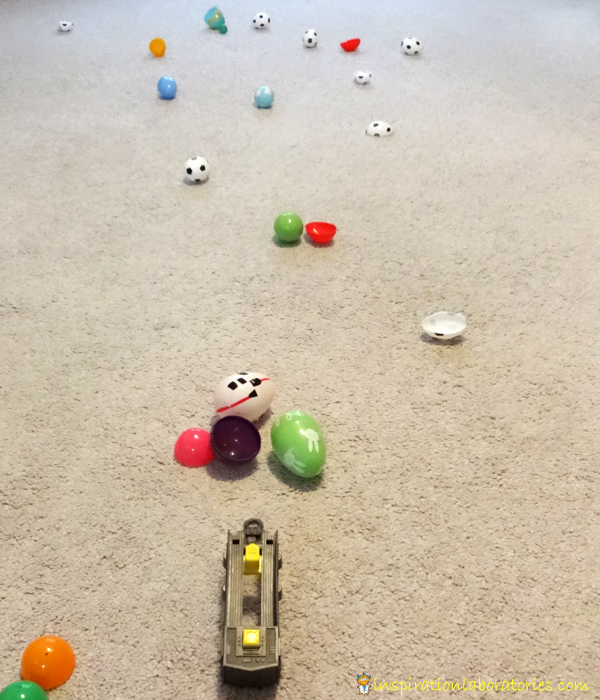
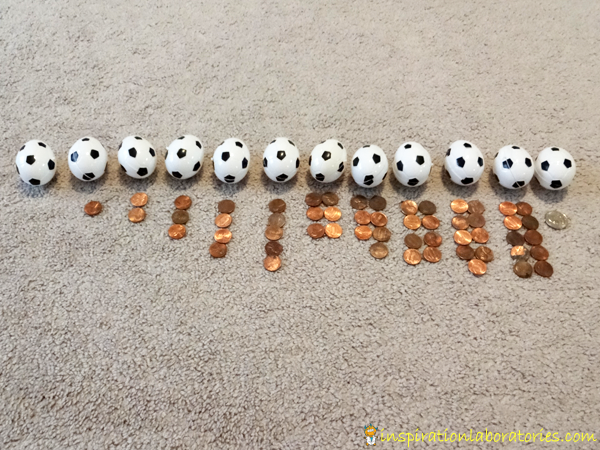
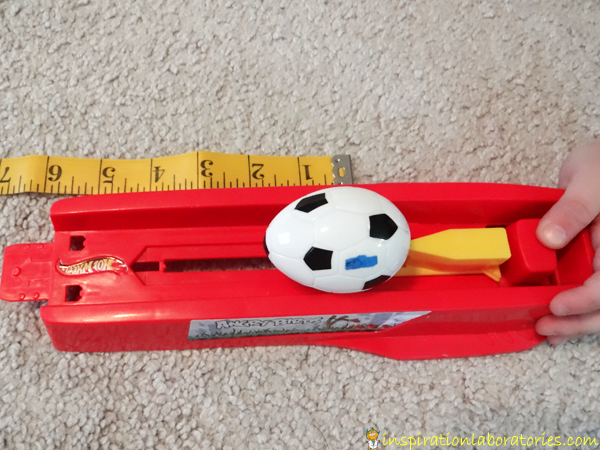
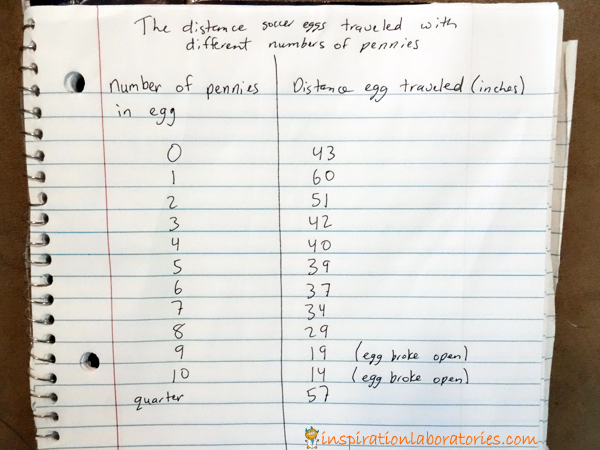
Leave a Reply